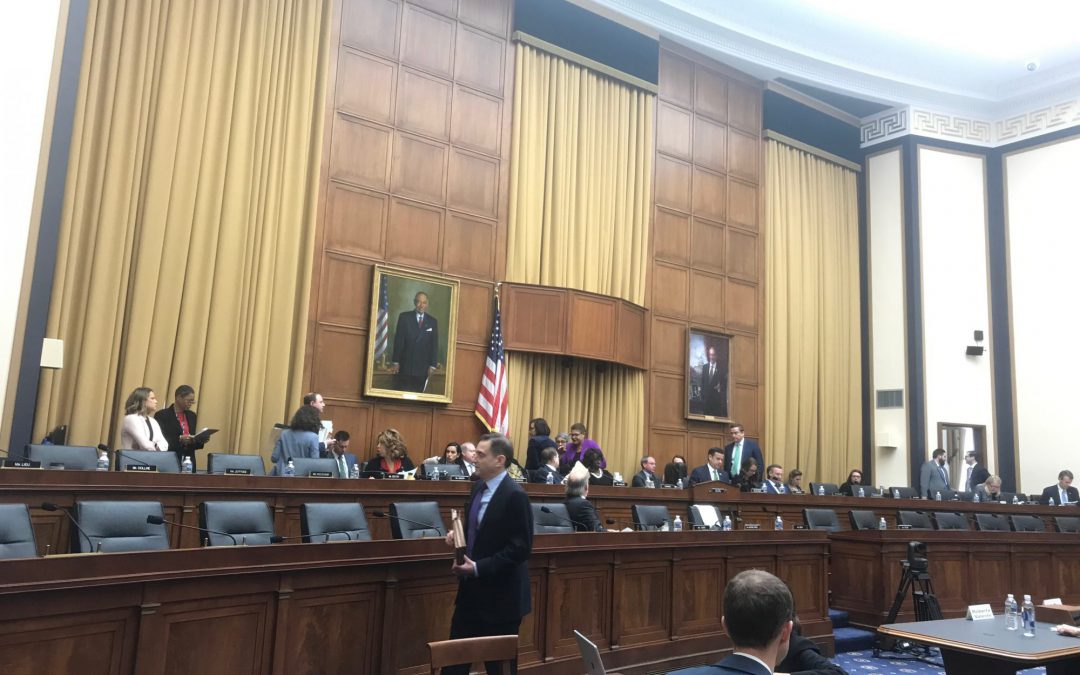WASHINGTON—Democrats and Republicans agree that reauthorizing the landmark 1994 Violence Against Women Act is a priority but disagree on whether to pass the bill with major changes. Ranking Member John Ratcliffe, R-TX., called a request for increased resources and new policies a “power grab,” while Chairwoman Karen Bass, D-Calif., said they would “strengthen VAWA so it meets today’s challenges.”
But testimony from Professor Sarah Deer, a McArthur fellow, member of the Muscogee Tribe and advocate for Native American legal issues relating to sexual violence, focused on the need for the reauthorization of VAWA to allow tribal courts to have an ability to prosecute non-Native Americans for sexual assault, child abuse and domestic violence.
“The DOJ’s own statistics reveal that native women are living a tragedy,” Deer said. According to a 2016 National Institute of Justice report, 84.3 percent of American Indian and Alaska Native women have experienced violence in their lifetime, a rate that is 1.2 times higher than non-Hispanic White-only women. They are also more likely to experience interracial sexual violence than non-Hispanic White-only women, meaning many perpetrators are outside of tribal jurisdiction.
In 1978, the U.S. Supreme Court ruled that tribal communities could no longer prosecute non-Native people. “I will note that the last sentence of that opinion is that Congress has the power to change that law,” Deer said. Bass responded, “We can do that? Okay,” and wrote a note in her papers.
Congress did make some changes in the 2013 VAWA reauthorization. They restored some limited prosecutorial rights, allowing tribal courts to prosecute crimes involving dating violence, domestic violence and violation of criminal protection orders.
Julia Beck, a self-described, “politically homeless radical lesbian feminist” who was removed from the Baltimore LGBTQ commission for what local officials said were anti-transgender views, was invited to testify by the ranking member. She focused on VAWA’s definition of gender as an identity that is not necessarily attached to one’s biological sex.
Beck said because VAWA’s definition of gender does not limit the spaces and resources to biological females, it allows them to be abused by men. Beck cited a 2018 incident in which a prisoner in the U.K., who was transitioning from male to female, admitted to raping fellow inmates while in a women’s prison.
In response, Rep. Debbie Lesko, R-AZ, asked if Beck was concerned that “people might be gaming the laws and pretending that they are a woman in order to attack women, in let’s say, a domestic violence shelter designed for women?” Beck said it was a concern.
Rep. David Cicilline, D-RI., interrupted the exchange to request a point of personal privilege, stating “I think the suggestion that transgender individuals are pretending they are a different gender is deeply offensive.”
Judge Romano said that she was disappointed at the division over gender identity in the hearing.
“It’s unfortunate that we decided to make this a women’s issue, when it’s a humanity issue,” she said. “VAWA needs to include all, if the violence is going to stop.”
Democrats looking to allocate more funding to certain areas of VAWA also brought up underfunded domestic violence hotlines, backlogs of unprocessed rape kits, preventative sex education, and the need for housing for victims of domestic violence.
The House Judiciary Committee said that the bill would be marked up sometime next week.


